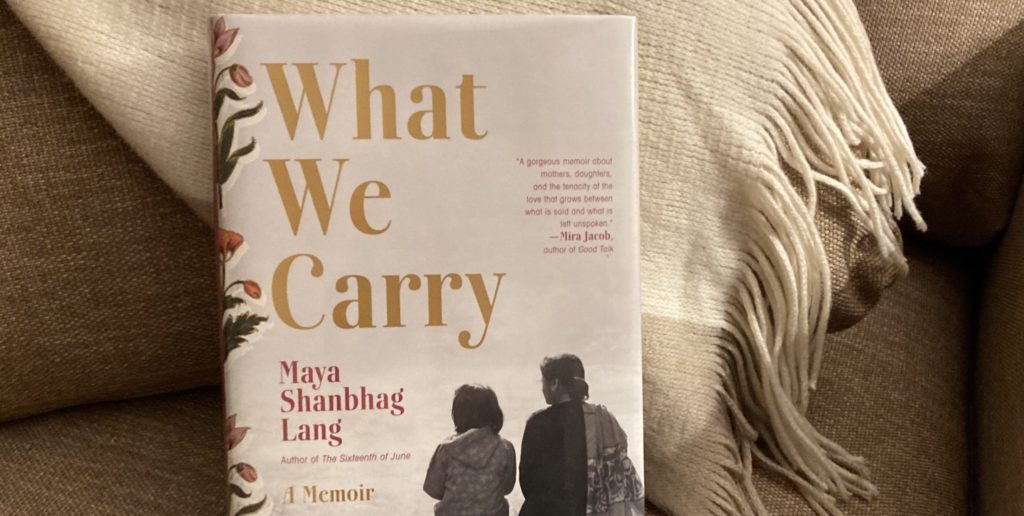Lately I’ve been reading memoirs for reasons that remind me of a line from the uneven but wrenching musical Falsettos. It’s sung by the sometimes lovable, sometimes despicable protagonist: “I never wanted to love you/ I only wanted to see my face in yours.” But the best memoirs not only reflect back who you are. They also open worlds beyond your ken, understandings beyond your narrow vision.
Maya Shanbhag Lang’s What We Carry does all of this. It is a mother-daughter tale, one so unflinchingly honest that I kept dogearing pages, astonished by the author’s ability to see and name her feelings. Toward the end of the book, emerging from an almost idolization of her psychiatrist mother throughout childhood and early adulthood, Lang observes: “Truthfully, my mom wasn’t a terribly empathetic person.” She goes on to insist: “When a person shows you who she is, you should believe her, yet I bent over backward to see otherwise. Focused on the fantasy of a devoted mother, I chose to ignore so much.”
What Lang ignored, and what she still loved about her mother after discovering sacrifices from her life in India and then in Long Island and New Jersey, fills the pages of this book with surprises. All of this happens to Lang en route to ushering her mother through Alzheimer’s while raising her own child. I couldn’t stop reading, wondering how Lang would make her peace with her mother before the book ended.
One hint comes in a story that opens the book and recurs a couple of times, with new understanding in each iteration. “Once there was a woman in the river,” her mother started in, telling the story nine days after Lang gave birth to her own daughter. “She held a child in her arms. Her son. She needed to cross the river, but it was much deeper than expected. As the water reached her chest, she panicked.”
Ultimately, Lang’s mother warned, “she could save herself or she could save her child.” The beauty of this memoir is that, in the end, it doesn’t exactly force a choice.

